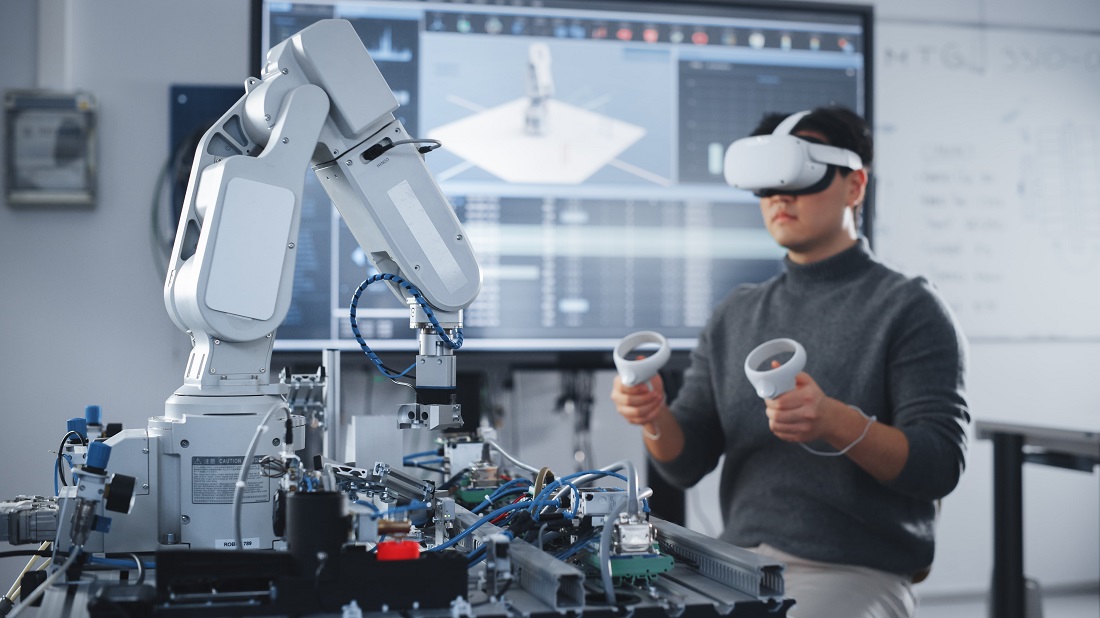
What transformation to be expected in education with web 3.0?

The education system is constantly changing, and things are getting online.
The education system is continuously evolving, and everything is going online. However, it is obvious to doubt the benefits of education with web 3.0, as education is a pillar for your future.
However, you may be interested in learning more about the scopes and roles of web 3.0 in education.
Let me ask you a question: how would you react if your most terrifying secrets were revealed to the entire world? It could very well be a nightmare.
In the era of 'world-wide-web,' we all are exposed to cybercrime threats, and trust is being eroded by cybercrime and heists.
Cybercriminals are interested in more than just stealing people's identities; they are also interested in the numerous forms of information we may look for, transmit, or download. As a result, overcoming the enormous privacy risk connected with Web 2.0 is crucial. You can also get knowledge about metaverse in education.
The answer to all these problems is web 3.0!
Let us understand the concept and Education with Web 3.0
Understanding education with web 3.0
Web 3.0 is the evolution of web technology's third generation. The web is the foundation for using the internet, providing website and application services. Web 3.0 is built on the concept of constructing a decentralized system.
This new technical dimension believes in using the power of artificial intelligence, machine learning, and cutting-edge technologies like Blockchain to address difficulties in today's internet or online ecosystem.
During the epidemic, the edtech industry proliferated, allowing students to become more flexible and self-sufficient in their studies. Teachers began to polish their online teaching skills on a daily basis at the same time.
Web 3.0 has the potential to revolutionize education. Web 3.0 is an open-source platform that allows students to engage directly with one another. Furthermore, students are not required to be intermediate level.
Students will also have the opportunity to interact with some of the world's finest scholars and innovators. Because of the changing pace, you may be able to learn alongside millions of talented individuals and profit from their knowledge.
The main benefits you can expect with web 3.0 are:
- Data Ownership
- Transparency
- Efficient searching
- Linking to the information
- Personalized surfing experience
- Service without interruption
Above mention benefits make web 3.0 a new Aladdin's magic lamp have immense possibilities.
Transformation in education with web 3.0
Let us talk about the ability of web 3.0 to transform.
Customized learning experience
There is no doubt that each and every learner is unique. As a result, you cannot expect the same rate of understanding and grasping the lesson. Web 3.0, in cooperation with AI, provides learners with a highly personalized experience based on their choices.
Learners can submit their preferences and interests into the system, and it will tailor the content based on the information entered. User profiles will serve as virtual avatar that portrays their online interests.
Web 3.0 support for teachers
Nothing can substitute for a real-life teacher or mentor. However, web 3.0 improves their ability to educate while also allowing them to pay attention to each pupil.
Web 3.0 standards will use tags or fields to organize online material, allowing browsers to recognize and comprehend information quickly.
Furthermore, the web 3.0 platform is significantly more transparent in terms of information gathering and access than the web 2.0 platform. In collaboration with a combination of web 3.0 and AI, faculty can alter students' perceptions of learning through cognitive growth.
Help to bridge the gaps
Web 3.0 creates a metaverse learning environment that is inclusive of all languages, educational systems, and disciplines of study. There are many students with disabilities who are unable to attend regular school; it may also be helpful to them.
You can learn more by conducting a clever search. Web 3.0 technology can forecast students' interests in a particular subject and provide blogs, videos, and other resources to assist students in learning about various course components.
Furthermore, based on their searches, undesired internet information relevant to their tasks will be shown, which may be incredibly valuable for students to learn about things that are outside the scope of their searches and topic constraints.
Decentralization
A single institution won't be the exclusive custodian of credentials in a Web 3 environment since Blockchain may preserve proof of work and proof of history. A student will have the opportunity to create a portfolio of their learning that will include group projects, peer mentorship, internships, and of course, formal classes from universities. They would consist of testimonies on something equivalent to a learning passport that was saved and validated on-chain, along with micro-credentials, educational NFTs, experience letters, awards, and research papers.
Conclusion
Data access and user-specific token handshakes will become ubiquitous with the launch of 5G. The huge network of blockchain hosts will then be accessible to every node, generating assets and significantly boosting user-specificity in searches.
Education with Web 3.0 can have downsides and detractors, just like any significant breakthrough. However, the benefits of a fairer and more open society are fascinating.
It can help students in their decision-making regarding their potential academic and career futures. By figuring out the student's learning aim and location, Web 3.0 may also propose relevant material.
Due to the fact that expert information is combined with several factors to define the student's life, education with Web 3.0 aids in helping students choose their future, which is highly helpful. They reach a conclusion that is both sensible and accurate.
Frequently Asked Questions
What is web 3.0?
Web 3.0 is the evolution of web technology's third generation. The web is the foundation for using the internet, providing website and application services.
What are the benefits of web 3.0?
Data Ownership, Transparency, Efficient searching, Linking to the information, Personalized surfing experience, Service without interruption etc.